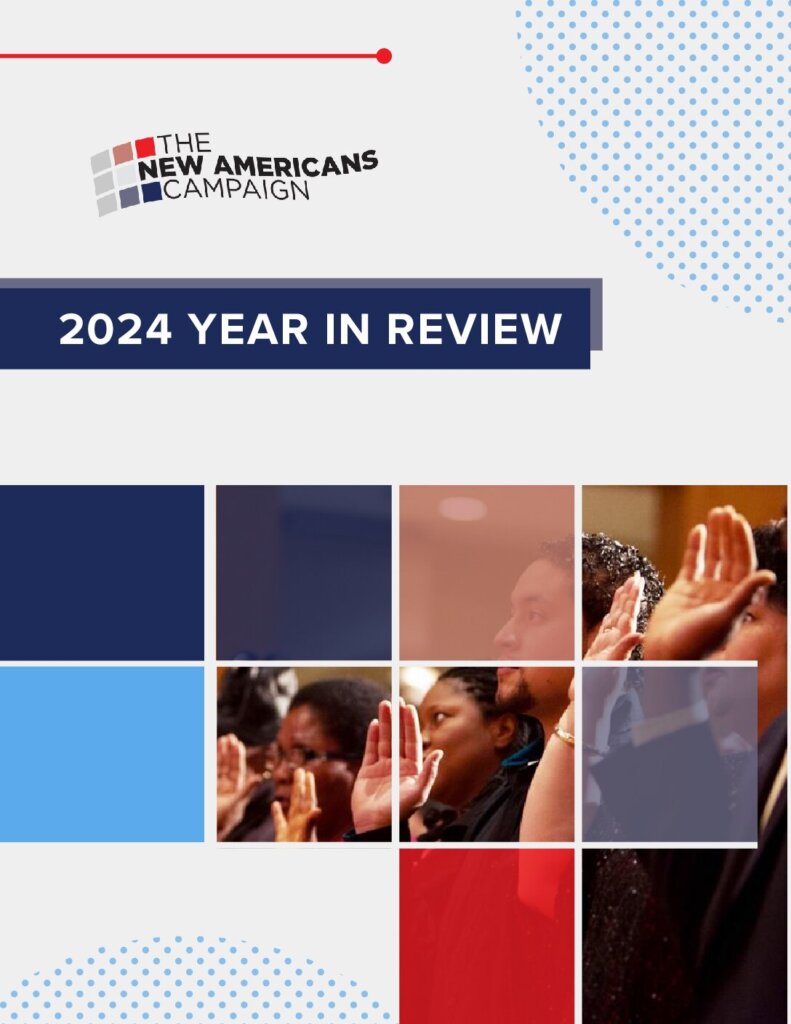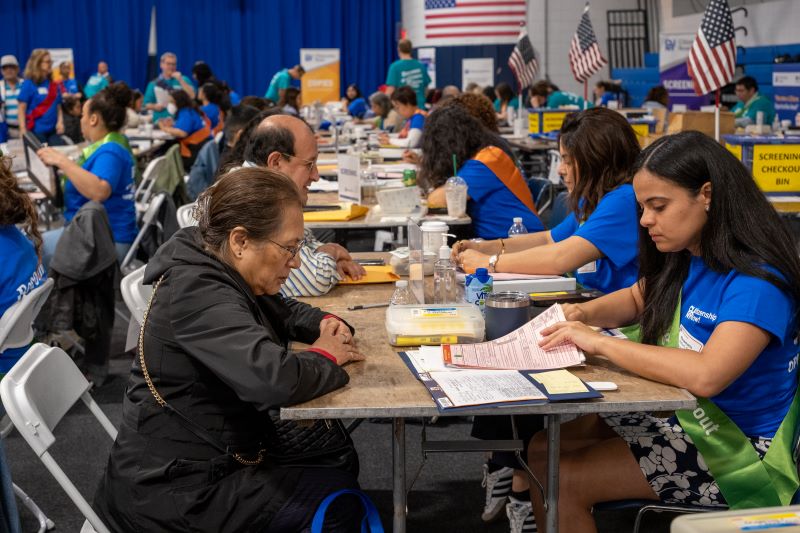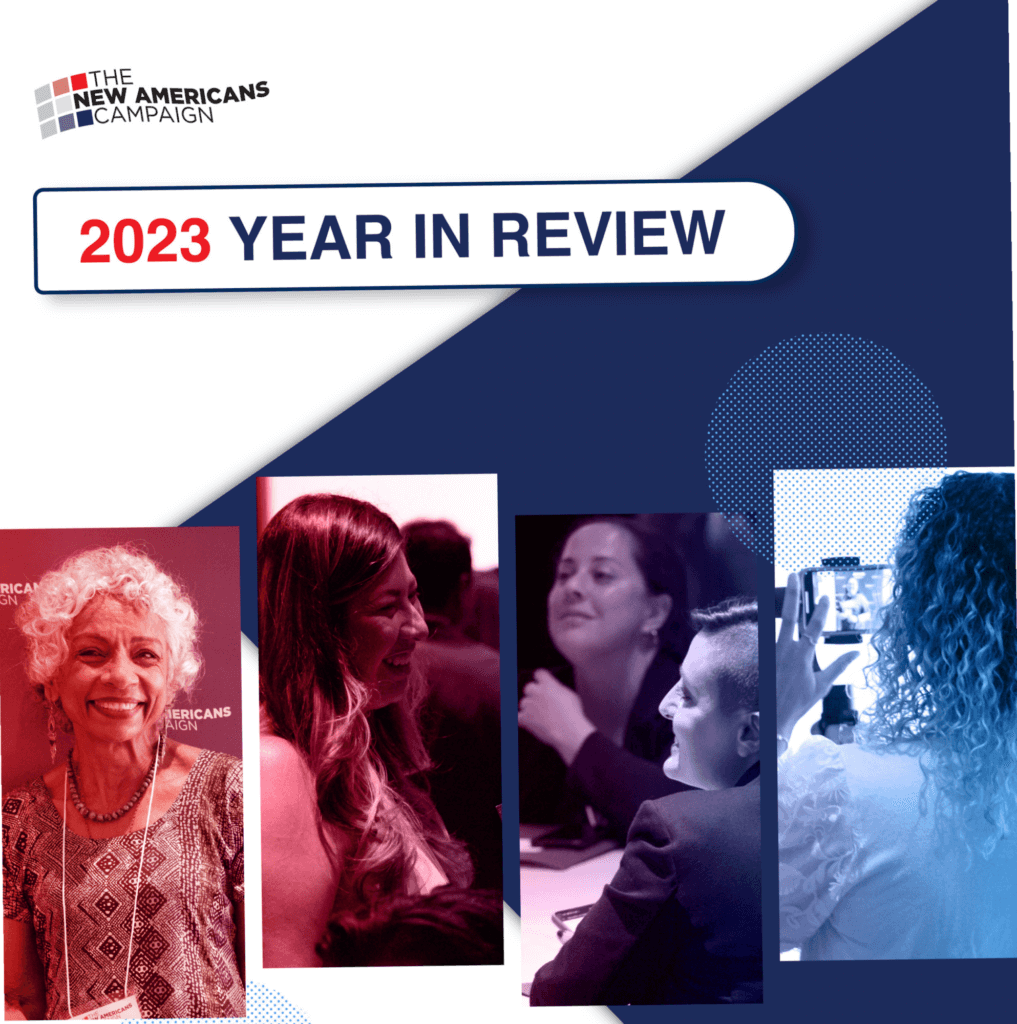The GAO Will Investigate the Delays in Immigration Cases

Explore More
June is Immigrant Heritage Month and the Washington Post reported that, according to U.S. Citizenship and Immigration Services (USCIS), the number of people who became citizens reached a five-year high in fiscal 2018—a total of 756,800 new Americans—up 16 percent from FY 2014. That sounds like good news, right? Unfortunately, the USCIS claim is deceptive.
An analysis of the numbers by the New Americans Campaign (NAC) found that
in FY 2014, naturalization levels had dropped 16% from the previous year. This
means that FY 2014 was actually a low point and the “five-year high,” applauded
by the USCIS, is really a slow climb back toward baseline. Under the Trump
administration, there’s been no increase in naturalizations at all. The total
of 756,800 new citizens in FY 2018 is, in fact, lower than the number of people
who became citizens in both FY 2012 and FY 2013.
Across the U.S., New Americans Campaign partners have been working hard to
reverse this decline, helping eligible immigrants submit strong citizenship
applications. And while the number of applications for citizenship increased
significantly in fiscal years 2016 and 2017, when you take into account that USCIS
is so backlogged that it is now processing the prior year’s naturalization applications,
the percentage of people who actually became citizens in the following fiscal
years 2017 and 2018 did not see a corresponding increase.
This false good news is a diversion from the very real delays that
immigrants face waiting for review of their applications. New Americans
Campaign partners and allies are calling on legislators to address the
increasing application backlogs. “Naturalization Working Group
member-organizations have met with a number of Congressional staff and
community stakeholders to share information about backlogs and processing
delays, says Erin Hustings, Legislative Counsel for the NALEO Educational Fund,
which leads the Naturalization Working Group. “We are also asking for their
support in seeking further information and redress from USCIS.” So far advocates have successfully persuaded the House Appropriations
Committee to secure more than $45 million in additional funding in the 2020
Homeland Security bill to allow USCIS to hire more adjudicators and increase
processing efficiency. The bill,
however, has not yet had a full House or Senate vote. In the meantime, there
are currently more than 2.3 million immigration cases waiting to be considered;
this includes naturalization, visas and all other immigration benefits.
The backlog of naturalization applications alone has doubled since 2016, to nearly 750,000. Over the past two years, from the initial application to the final naturalization ceremony, the wait time more than doubled creating “horrendous delays” according to a study by the American Immigration Lawyers Association (AILA), despite only a 4% increase in applications. Additional analysis by Boundless Immigration, a Seattle-based technology company, found great inconsistency in processing times across USCIS field offices. In Cleveland, OH, for example, NAC partners serve clients with a median wait time of 4 months, while NAC clients in St. Paul, MN typically wait 15 months, and sometimes as long as 2 years for an interview.
“Rather than waste resources on increasing barriers to naturalization by
changing the application form, the fee waiver form, and the oath ceremony
notice, the USCIS should focus on achieving efficient processing times in all
field offices,” says Melissa Rodgers, Director of Programs at the Immigrant
Legal Resource Center (ILRC) and the director of the New Americans Campaign. “The
USCIS needs to learn from offices that are doing well, there’s no reason that
our naturalization system should be that capricious. “
The real good news is that the Congressional Hispanic Caucus, led by Congressman Joaquin Castro (D-TX), rallied more than 80 Representatives in May to demand that the Government Accountability Office (GAO) launch an investigation. “Processing delays for applications and immigration benefits have reached crisis-levels,” they wrote, “and these delays are hurting families and businesses that depend on timely adjudications.” The USCIS claims that the delays come from higher application rates, rather than slow processing. But more applications also bring in more application processing fees that should support the review. The GAO recently agreed to open an investigation. It assigned Charles Johnson Jr., the Managing Director, of Homeland Security and Justice, to spend the next five months assembling the team to conduct the analysis—a slow start to a matter of such urgency.



